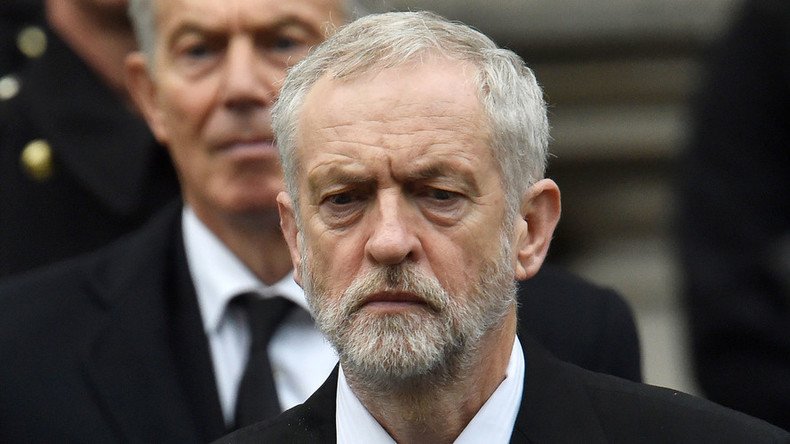Tony Blair pens savage attack on Jeremy Corbyn, defends legacy of ‘Blairism’

Former Prime Minister Tony Blair has penned a scathing attack on Labour leader Jeremy Corbyn, describing the current state of the party as a “tragedy.” He defended his own legacy of ‘Blairism.’
Blair said the Labour Party has been reduced to a “fringe protest movement” and was in danger of failing to ask the right questions, never mind failing to get the right answers.
In a lengthy article called ‘In defense of Blairism’ for the right-wing Spectator magazine, the controversial former PM defended his time in government against critics who argue Labour lost its way during the Blair years.
Blair’s attack on Corbyn is the first since the backbencher became leader of the party in September.
No obligation on Tony Blair to publish his defence 'of Blairism' ahead of times. Could have saved it for the trial
— Edmund Griffiths (@EdmundGriffiths) December 9, 2015“All wings of the Labour Party which support the notion of the Labour Party as a party aspiring to govern, rather than as a fringe protest movement, agree on the tragedy of the Labour Party’s current position,” he wrote.
“All of it is about applying values with an open mind; not boasting of our values as a way of avoiding the hard thinking the changing world insists upon.”
Blair went on to write a lengthy defense of Blairism, the political ideology which evolved out of his tenure in power.
Livingstone directly blames Blair for the deaths of 52 people in the 7/7 attacks https://t.co/WrEOuZR6sZpic.twitter.com/vCp1g52t9s
— RT UK (@RTUKnews) November 27, 2015“Significant elements of the party [during Labour’s time in power] saw the process of governing with all its compromises, pragmatism and embrace of changing times as implicit betrayal of our principles,” he said.
“Many – especially in today’s Labour Party – felt we lost our way in government. I feel we found it.
“But I accept in the process we failed to convince enough people that the true progressives are always the modernizers, not because they discard principle but because they have the courage to adhere to it when confronted with reality.”
Blair listed the many achievements of his government, which included revitalizing the notion of community and “family ties,” introducing the first minimum wage, giving the Bank of England independence and promoting peace in Northern Ireland.
Yes Tony, you did "revitalise family ties"- many more young people are now financially dependent on their parents, for example #Blairism
— Francis L (@Frankjl1980) December 9, 2015He described his government as having been “radical” with a “moral purpose.”
On two of the most controversial legacies of his government – the Iraq War and 2008 financial crisis – Blair is equally defensive.
“We didn’t spot the financial crisis – along with the rest of the world. It was more an absence of understanding than an absence of a will to regulate which was the issue,” he wrote.
Blair: Syria strikes "only the beginning, got to uproot IS ideology from Muslim communities" https://t.co/8d08zdII4ppic.twitter.com/8ZCuGtIBAw
— RT UK (@RTUKnews) December 4, 2015Blair’s defense of Labour’s fiscal policy appears to contradict his former Chancellor Gordon Brown, who acknowledged in 2011 he made mistakes in his “light touch” regulation of the UK’s financial services sector in the run up to the financial crisis.
He told the Institute for New Economic Thinking in Bretton Woods that he had come under “relentless pressure” from the City of London not to over-regulate.
Blair also glosses over the defining moment of his premiership – Britain’s invasion of Iraq, hand in hand with the United States, in 2003.
#Blairism the idea that took us into perpetual war and made us a poodle of American war-mongers and liars.
— Scarlet Wilde (@wilde) December 9, 2015“Post 9/11 I became convinced that Islamist extremism was the security issue of our time,” he wrote.
“People can agree or disagree with the decisions which I took and the emphasis I put on the partnership with the USA, but I took them not in defiance of progressive politics but in furtherance of them.
“I believed then and believe now that this extremism is a modern form of fascism, albeit one based on religious doctrine and that we’re engaged in a global war against it.”












